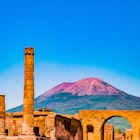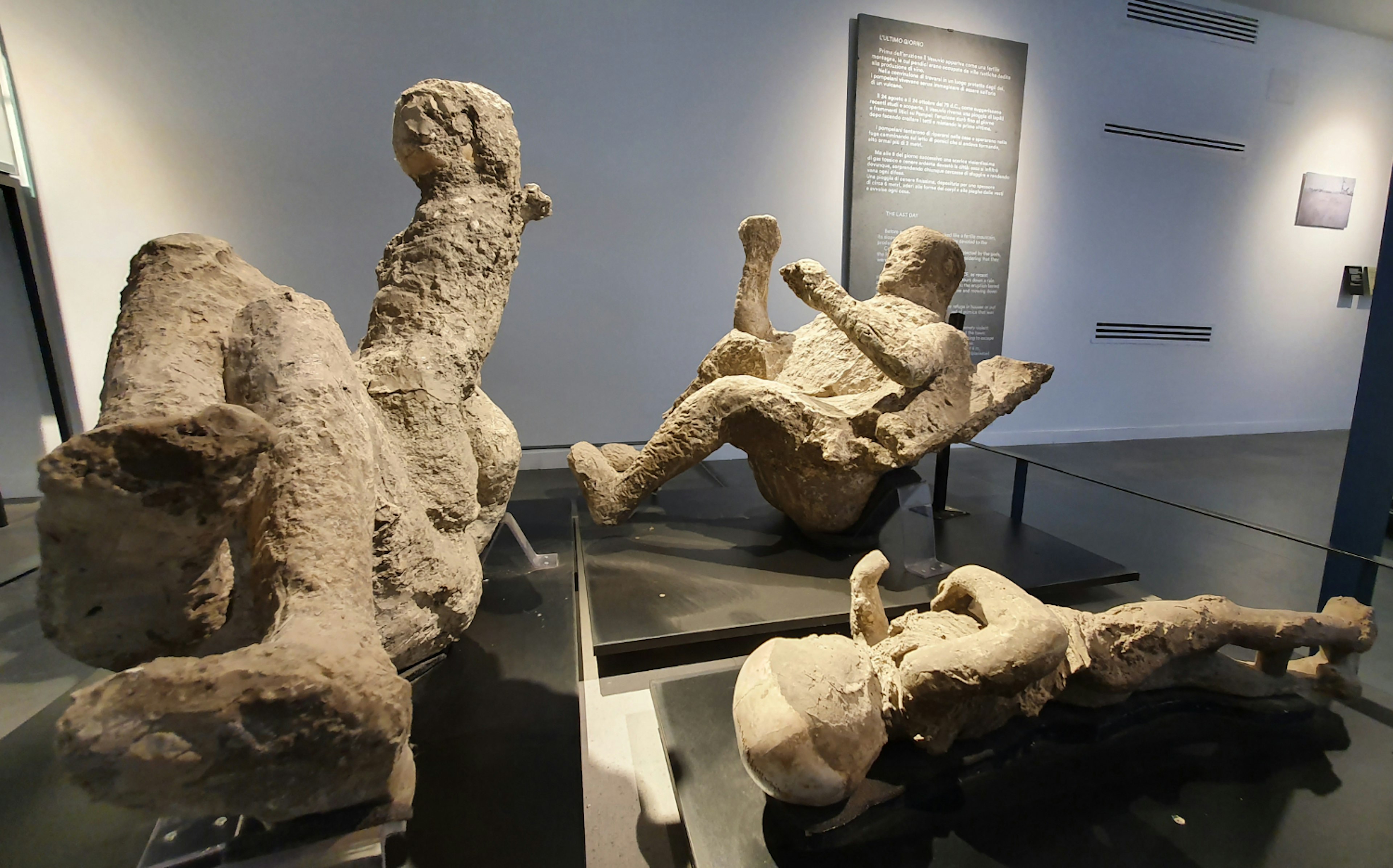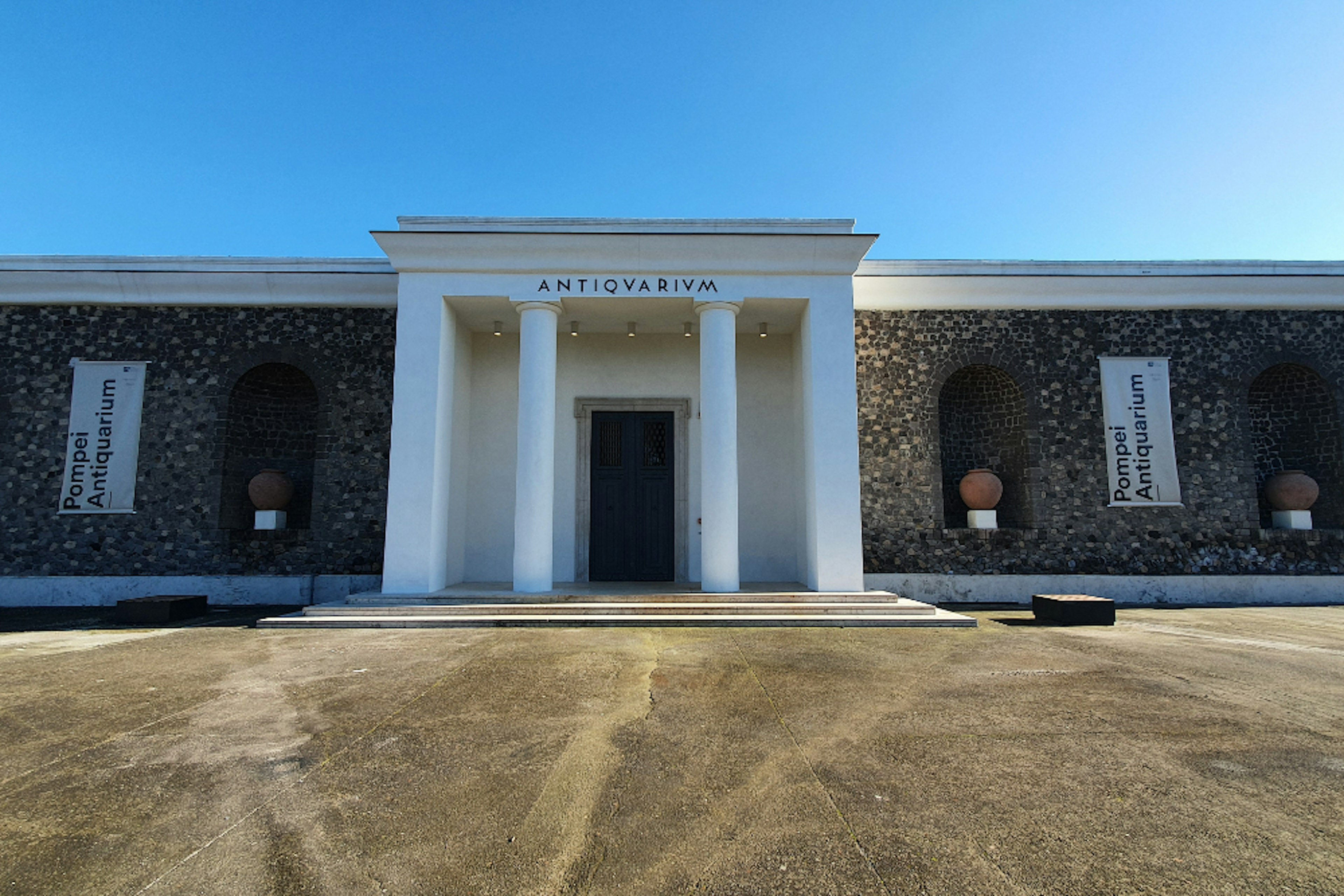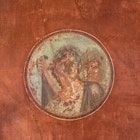

Pompeii’s historic museum reopens with new artifacts © Kontolab/LightRocket/Getty Images
- placement: fullWidth
- path: articles/in-content-top
- possible size: [970, 250], [970, 90], [728, 90], [300, 250], [320, 50], [1, 1],
- targeting:
{ "url": "antiquarium-pompeii-reopens" }
The Antiquarium of Pompeii has reopened as a museum, exhibiting finds that show and narrate the story of the ancient city of Pompeii. The historic building has been completely refurbished and inaugurated with a new layout, and it traces the history of Pompeii from the Samnite era – 4th century BC – until the eruption of AD 79.
The Antiquarium was originally built by Giuseppe Fiorelli between 1873 and 1874 in the area below the terrace of the Temple of Venus. At that point, it was the exhibition venue for a selection of finds that were representative of the daily life of the ancient city, as well as for casts of the victims of the eruption of Mt Vesuvius.

- placement: fullWidth
- path: articles/in-content-middle
- possible size: [970, 250], [970, 90], [728, 90], [300, 250], [320, 50], [1, 1],
- targeting:
{ "url": "antiquarium-pompeii-reopens" }
In 1926, it was expanded by Amedeo Maiuri, who added large maps indicating the updated developments of the excavations since 1748. He enhanced the collection with new finds from the Villa Pisanella of Boscoreale, as well as more recent excavations of Via dell'Abbondanza, and laid out a route to guide visitors through the history of Pompeii from its origins until the eruption.
The building was seriously damaged in 1943 by bombing during World War II, but thanks to Maiuri's restoration works, it reopened to visitors five years later as part of the celebrations of the second centenary of the excavations of Pompeii. It closed to the public again after it was damaged by the 1980 earthquake, and remained closed for 36 years until it reopened in 2016 as a visitor center with temporary museum exhibits.
- placement: native
- path: articles/in-content-native
- possible size: [f, l],
- targeting:
{ "url": "antiquarium-pompeii-reopens" }
The new renovations are reminiscent of Amedeo Maiuri’s first concept for the museum and provide an introductory tour before an actual visit to the site. Visitors can see the most famous artifacts from Pompeii, such as the frescoes of the House of the Golden Bracelet, the Moregine Silver Treasure and the triclinium of the House of Menander, as well as finds unearthed by the most recent excavations undertaken by the Archaeological Park. These include fragments of First Style stucco from the House of Orion, the amulet treasure from the House with the Garden and the recently produced casts of the victims from the Civita Giuliana villa.

There are two forms of digital media available to visitors, including audio narration, and a web-bot – a digital assistant that provides simple and clear service information. Further information can be found on the website here.
You might also like:
Take a virtual drone tour of the fascinating new excavations in Pompeii
Excavations on 'Ireland’s Alcatraz' revealed a hidden staircase
Take a virtual tour of the fascinating history and architecture of the Moscow Metro
- placement: fullWidth
- path: articles/bottom
- possible size: [970, 250], [970, 90], [728, 90], [300, 250], [320, 50], [1, 1],
- targeting:
{ "url": "antiquarium-pompeii-reopens" }
Explore related stories

History
Street food stall discovered in Pompeii reveals dining habits of Ancient RomansJan 4, 2021 • 2 min read


 HistoryInside Pompeii's House of Lovers as it reopens to the public after 40 years
HistoryInside Pompeii's House of Lovers as it reopens to the public after 40 yearsFeb 19, 2020 • 2 min read
 HistoryOne of the most well-preserved villas of Ancient Rome reopens after 35 years
HistoryOne of the most well-preserved villas of Ancient Rome reopens after 35 yearsOct 24, 2019 • 2 min read


 Art and CultureVisiting Pompeii in 2023? Exciting discoveries reveal new truths about the doomed city
Art and CultureVisiting Pompeii in 2023? Exciting discoveries reveal new truths about the doomed cityMar 17, 2023 • 6 min read
 ArchaeologySee inside one of Pompeii's grandest villas as it reopens for the first time in 20 years
ArchaeologySee inside one of Pompeii's grandest villas as it reopens for the first time in 20 yearsJan 12, 2023 • 4 min read
 Art and CultureSee another side of Pompeii as exhibition of erotic art opens to the public
Art and CultureSee another side of Pompeii as exhibition of erotic art opens to the publicMay 6, 2022 • 4 min read
